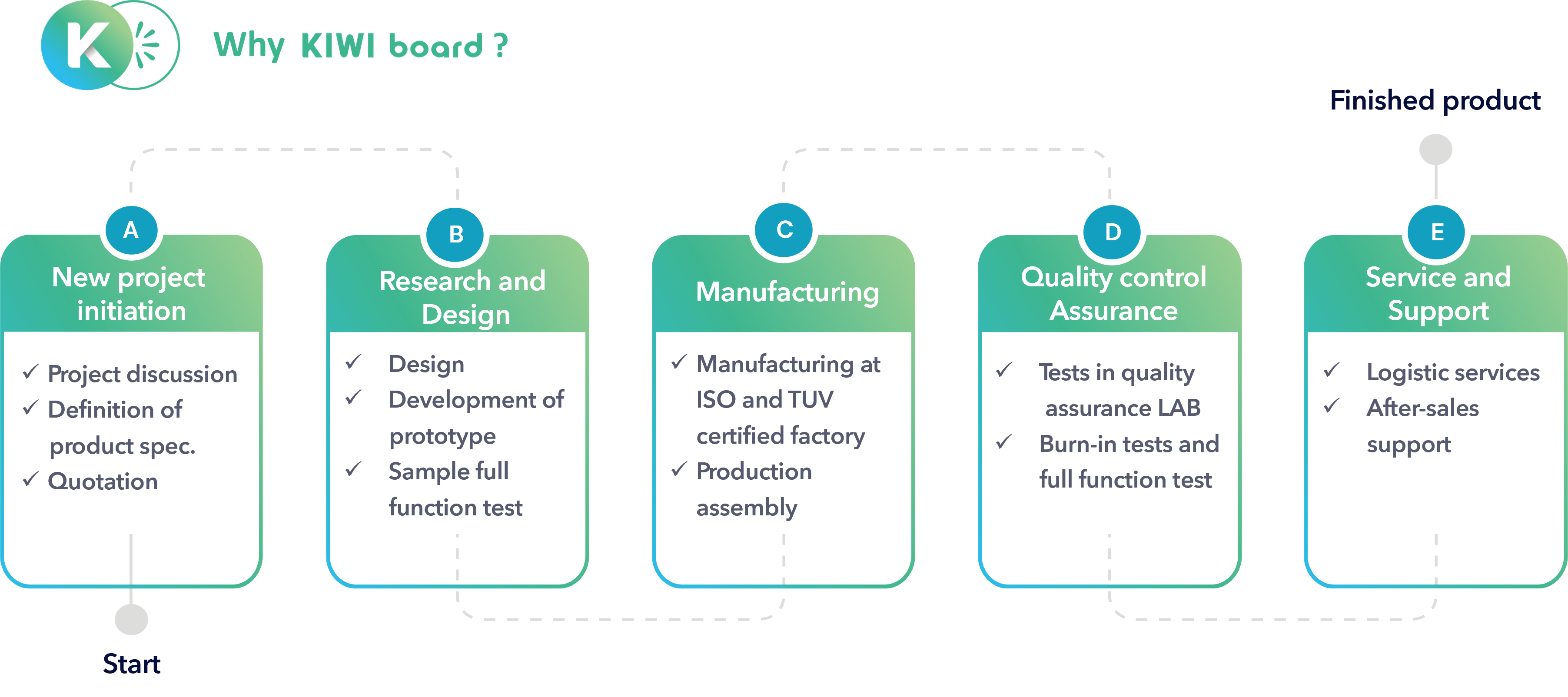Storage is a fundamental part of modern computing. It acts as both the guardian and retriever of data, serving as a critical element that bridges software, multimedia, information, and the Internet of Things (IoT). With the increasing demand for high-quality, versatile, and efficient storage, various technologies—such as HDDs, SSDs, and eMMC—offer unique advantages depending on the specific use case.
KIWI boards are designed to be adaptable and versatile, supporting a wide range of storage solutions to meet the needs of IoT, automation, and embedded computing applications. Their flexibility allows engineers to choose the optimal storage technology for each deployment, ensuring a perfect balance between performance, cost, and reliability.
Hard Disk Drives (HDD): Cost-Effective Legacy Solution
For decades, hard disk drives (HDDs) have been the primary storage medium in computing devices, relying on spinning magnetic platters and a mechanical actuator arm to read and write data. They remain a budget-friendly option, offering large storage capacities at a lower cost per gigabyte compared to newer technologies.
However, their mechanical design results in slower data access speeds and makes them more vulnerable to physical damage from shock or vibration. Additionally, continuous platter rotation increases power consumption, making HDDs less energy-efficient than modern solid-state alternatives. For this reason, their use is steadily declining in high-performance and embedded applications where speed, durability, and energy efficiency are critical.
Embedded Multimedia Card (eMMC): Optimized Integrated Storage
eMMC storage is widely used in compact computing solutions where reliability, power efficiency, and space optimization are critical. Unlike HDDs or SSDs, eMMC is soldered directly onto the board, eliminating removable components and potential failure points. This integrated approach enhances durability, making eMMC ideal for industrial and IoT applications operating in environments prone to vibrations or movement.
One of the key advantages of eMMC is its low power consumption, making it a preferred choice for energy-efficient devices like KIWI310, which offers a storage capacity of up to 64GB; the KIWI310 provides a cost-effective, power-efficient, and space-saving solution for compact computing platforms that demand stability and reliability across diverse industrial and commercial deployments.

KIWI310's eMMC Storage Solution
Solid-State Drives (SSDs): High-Speed Performance
SSDs have become the preferred storage choice for performance-driven applications, utilizing flash memory to deliver significantly faster data access speeds than HDDs. Their lack of moving parts enhances durability, reduces power consumption, and makes them well-suited for portable and industrial applications.
While SSDs typically cost more per gigabyte than HDDs and have a limited number of write cycles, modern wear-leveling algorithms and error correction techniques have greatly improved their longevity.
SSDs are available in various form factors, including 2.5-inch SATA, U.2, M.2 SATA, and NVMe. Among these, NVMe SSDs stand out for their exceptional speed and efficiency, utilizing a PCIe interface to enable high-bandwidth data transfers and reduced latency.

The KIWI330 features a 64GB NVMe SSD connected via a PCIe interface, ensuring seamless multitasking, rapid data processing, and superior system responsiveness for high-performance applications.

KIWI330's NVMe Storage Solution
Why KIWI board Solutions?
Selecting the right storage solution is essential for optimizing system performance, efficiency, and reliability in embedded, industrial, and IoT applications. While HDDs offer cost-effective, high-capacity storage, their mechanical limitations make them less suitable for modern, high-performance environments. eMMC storage, with its compact, energy-efficient, and integrated design, is ideal for space-constrained and power-sensitive applications, such as those supported by the KIWI310. For applications requiring high-speed data processing and superior performance, SSDs—especially NVMe variants—deliver unparalleled speed and efficiency, as seen in the KIWI330. By understanding the strengths of each storage technology, you can make informed decisions to ensure optimal functionality, longevity, and adaptability for your computing solutions.
About KIWI board
KIWI board is a complete solution provider, supporting all aspects of your project, from hardware to software to system integration, to keep your application running securely, reliably, and at peak performance. KIWI board builds its products for high reliability, performance, security, scalability, and versatility. So, customers can expect a long lifespan, quickly adapt to evolving system requirements, and adopt future technologies as they emerge.
Next steps
Ready to talk about your projects with a KIWI board expert? Contact us
Want to hear more from KIWI board? For our newsletter, Sign up
Or request a quotation

.jpg)









.jpg)



